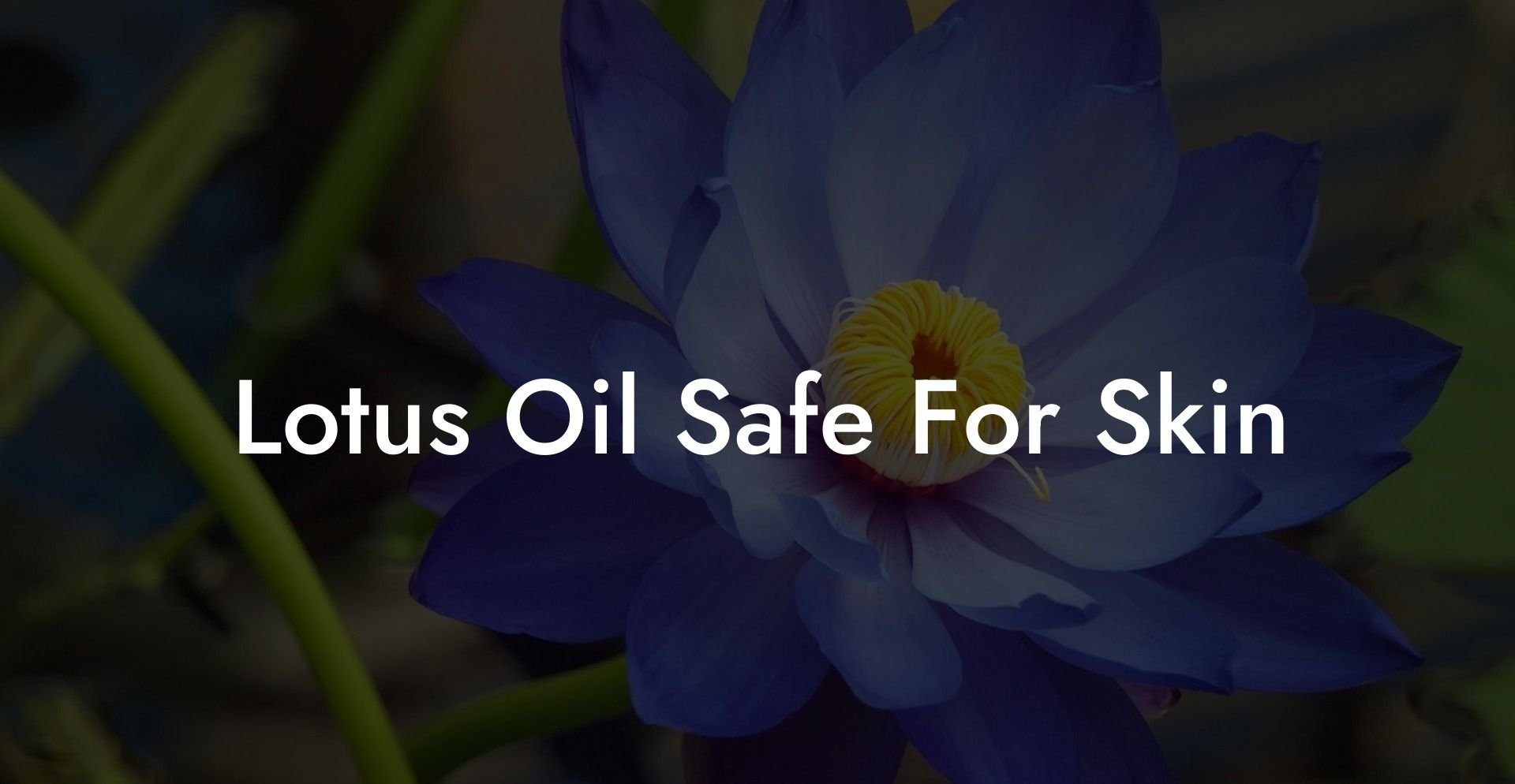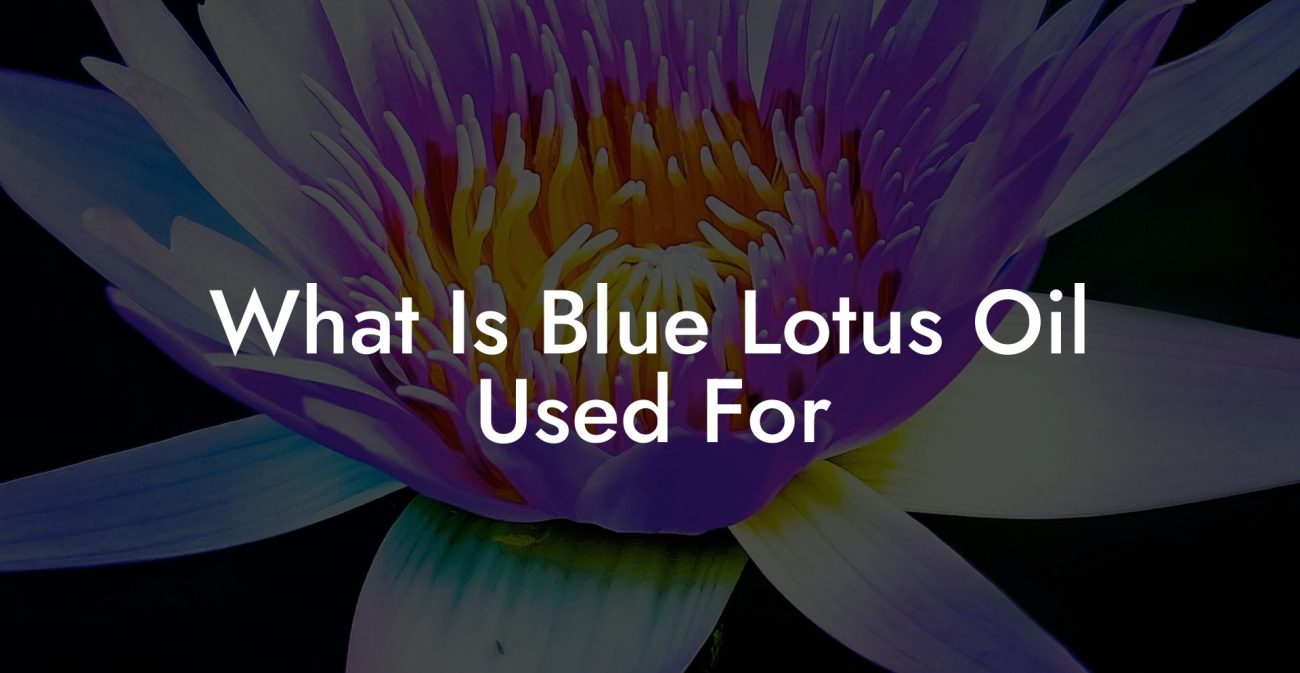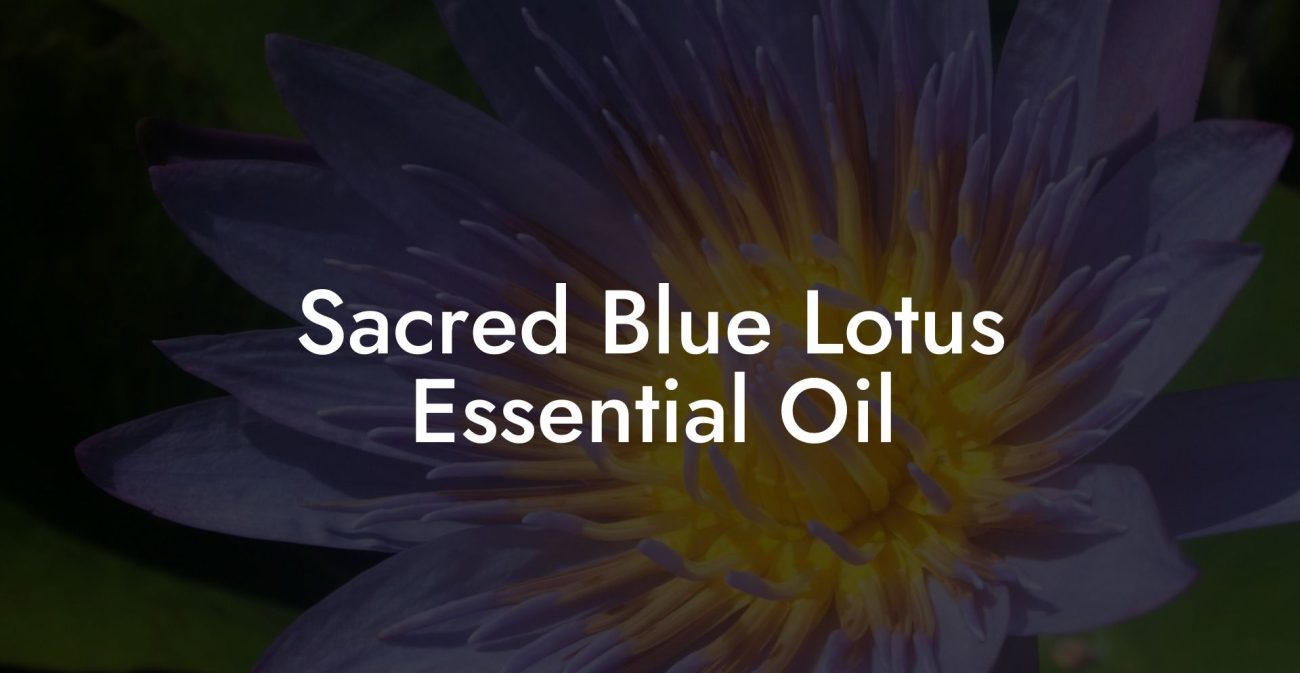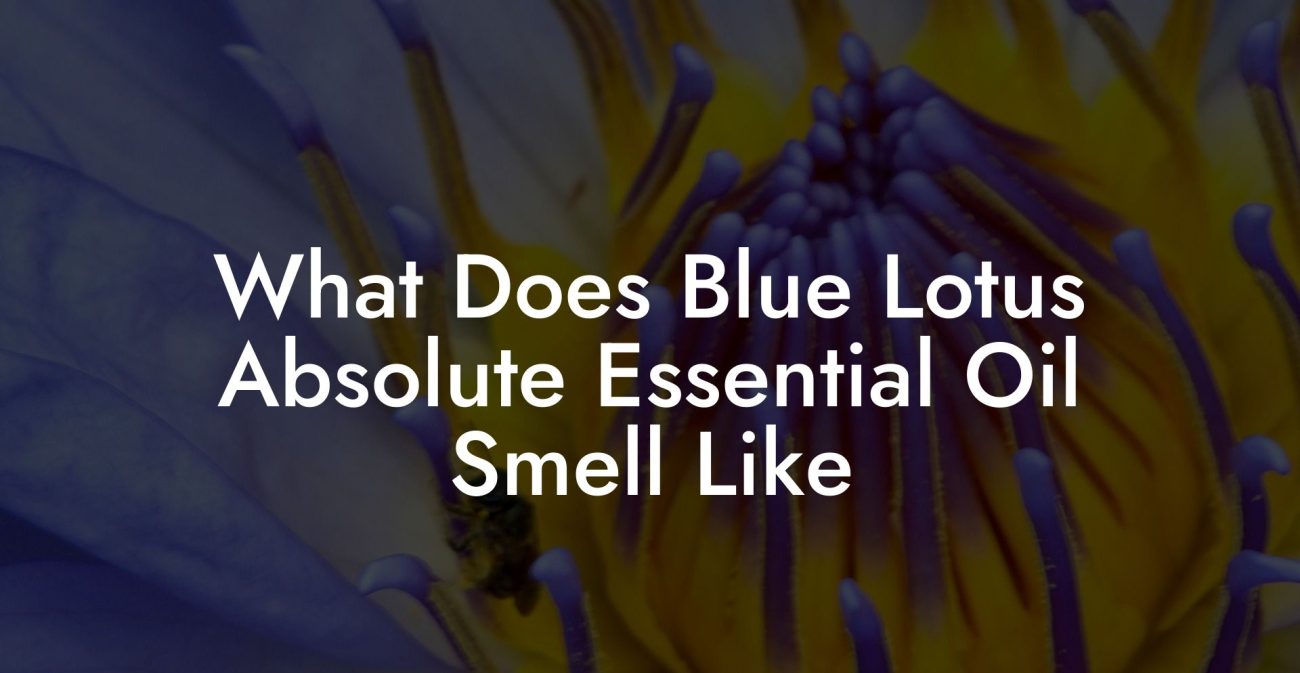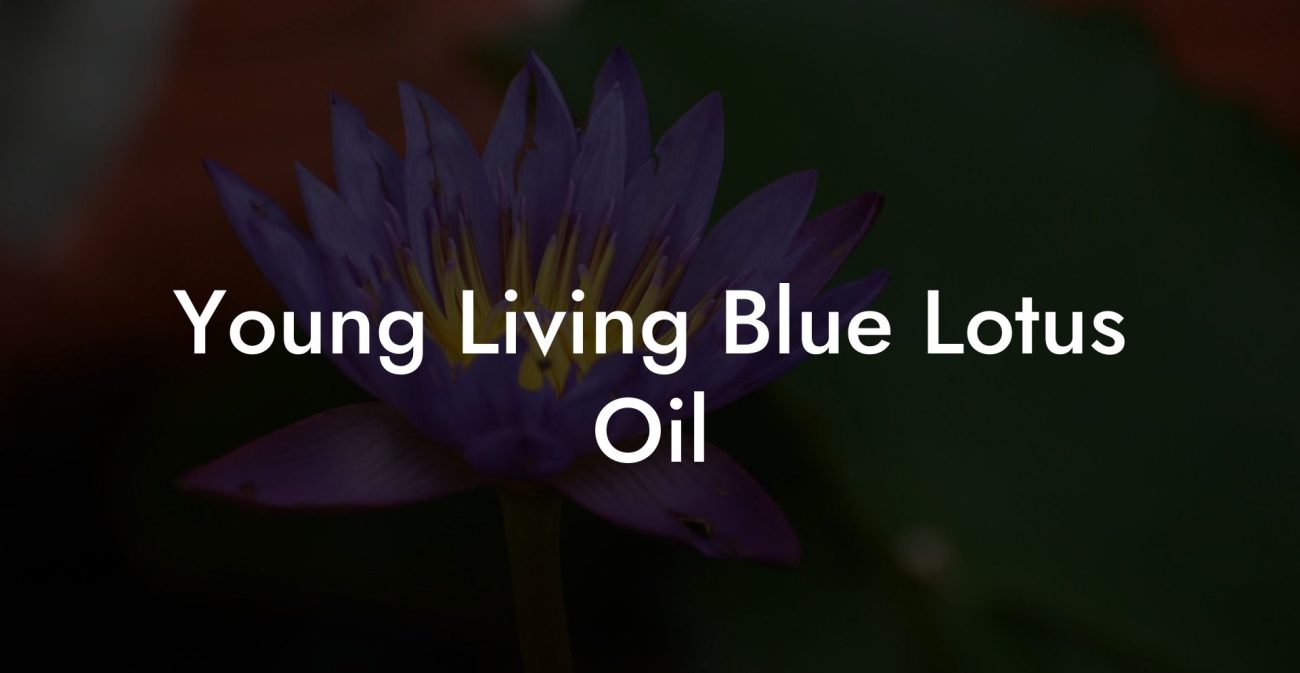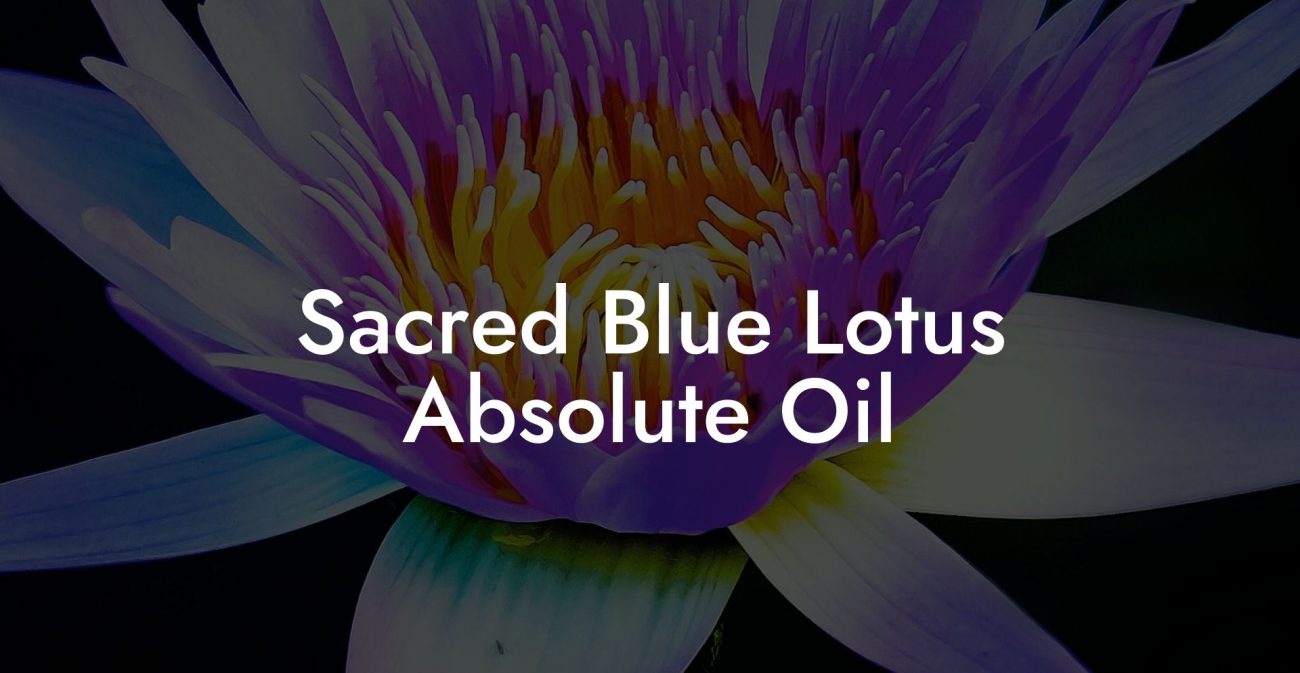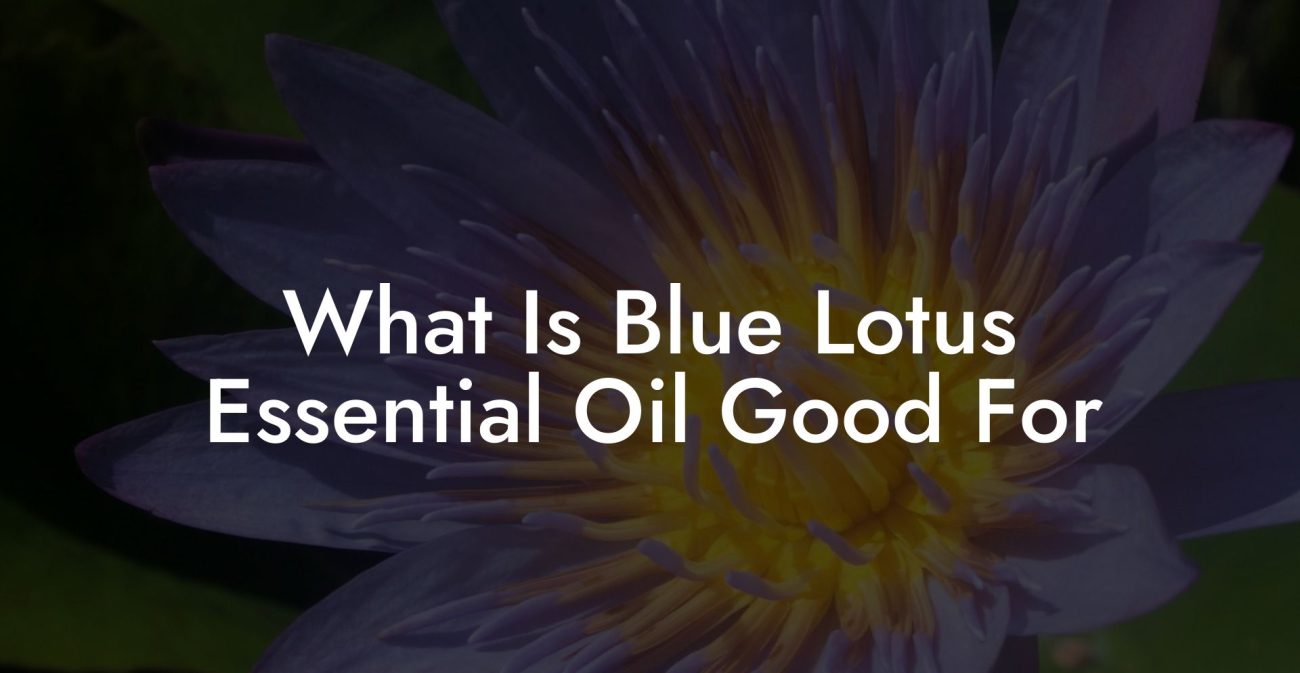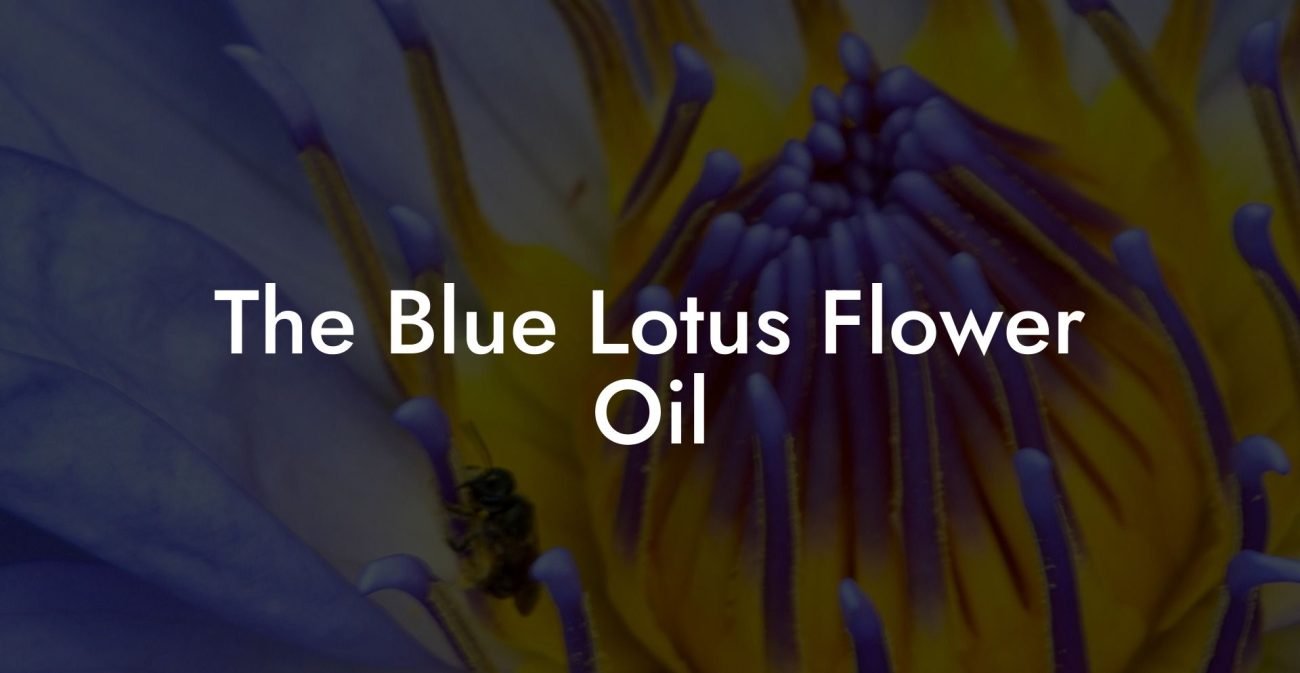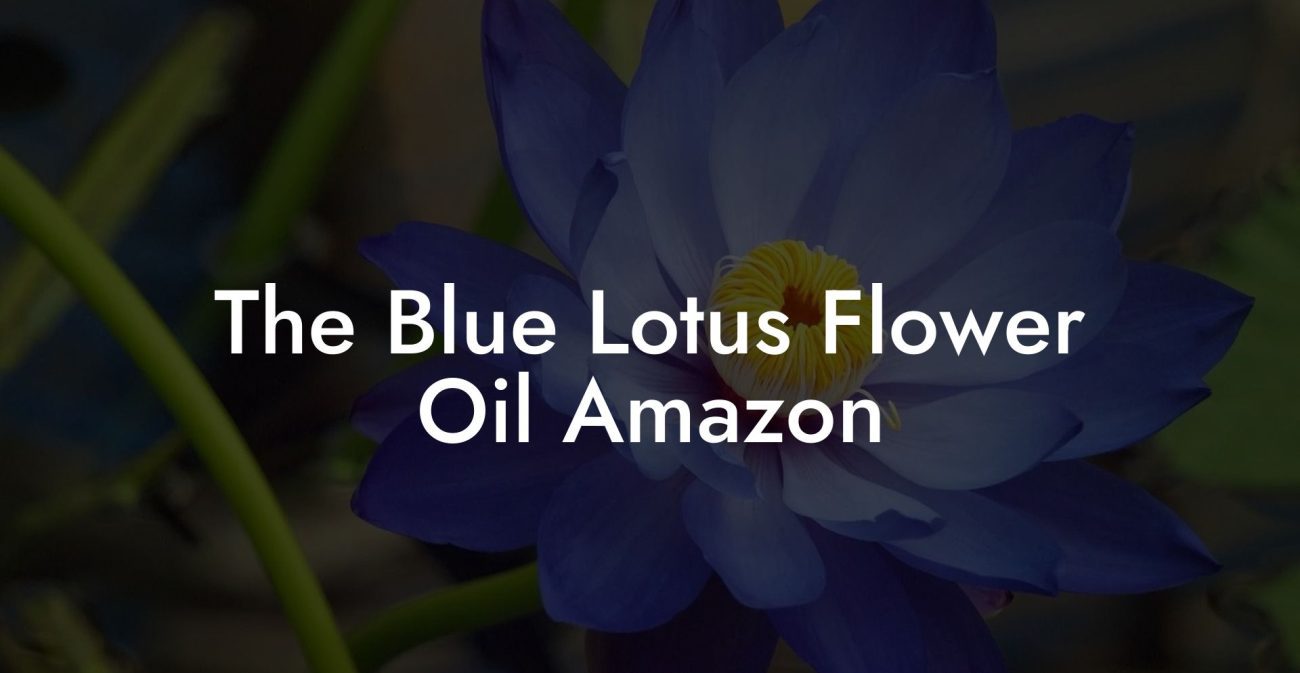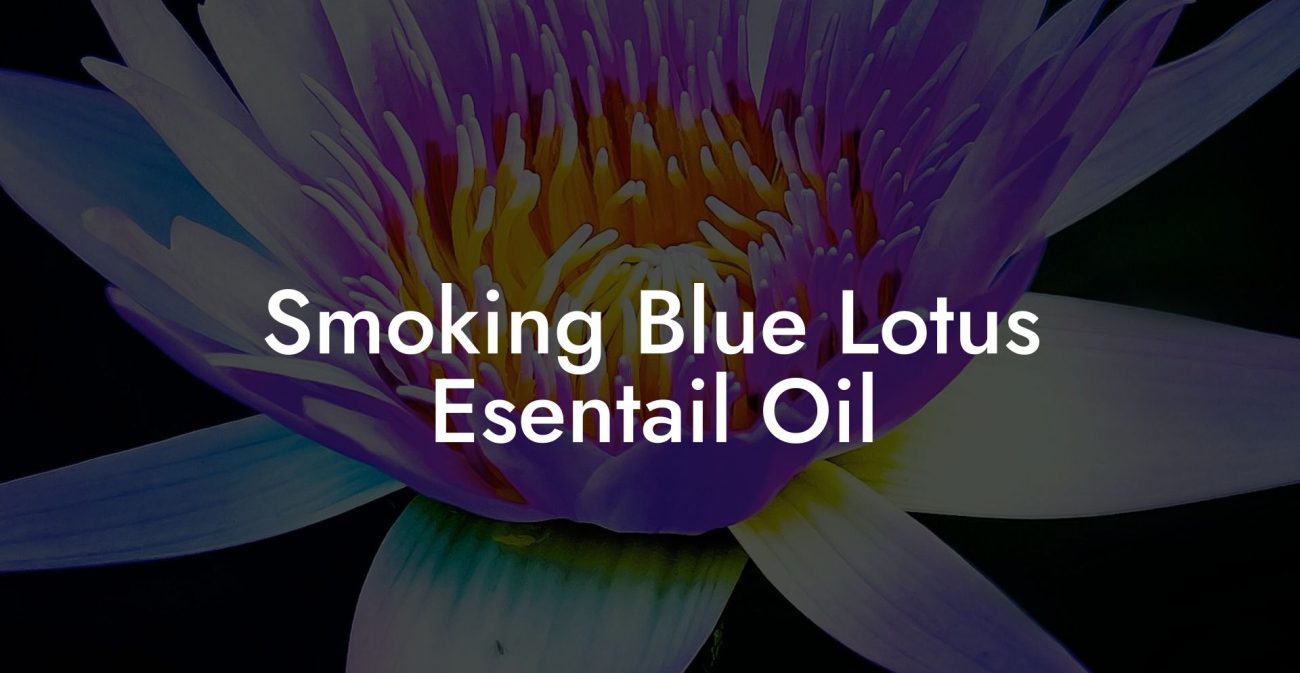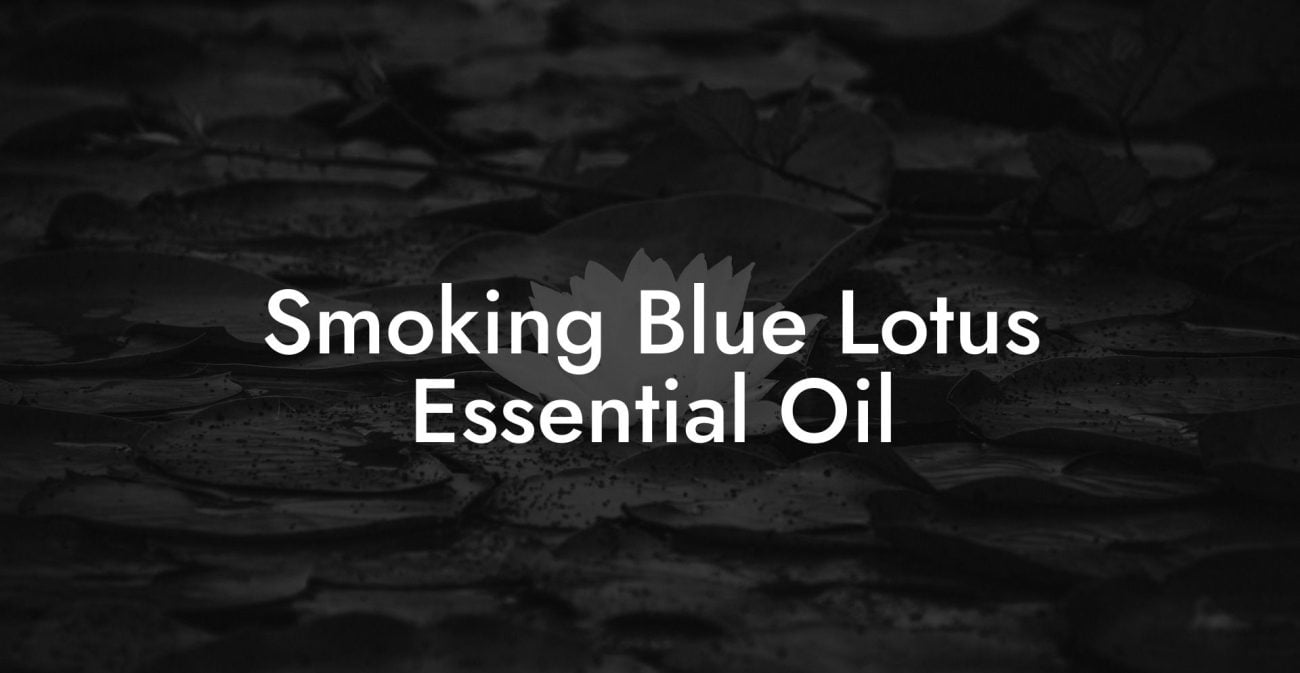The Simple Answer
Absolutely! Lotus oil is generally safe for skin use, provided it's used correctly and in the right amounts. It's derived from the lotus flower, a plant that has been revered for centuries for its skin-enhancing properties. Lotus oil is packed with antioxidants and vitamins, including vitamin C, that help to rejuvenate, hydrate, and improve the overall appearance of the skin.
Lotus Oil Safe For Skin Table of Contents
Commission Your Blue Lotus Oil Order
The Lotus Legacy: A Look into its Historical Use
Lotus Oil: Unveiling the Potent Potion
Blossoming Boon: The Benefits of Lotus Oil for Skin
A Blossoming Safety First: Is Lotus Oil Safe for Skin?
Skin Types and Lotus Oil: A Universal Match?
Incorporating Lotus Oil into Your Skincare Routine
However, as with any skincare product, individual responses can vary. While most people can use lotus oil without any issues, some may experience skin sensitivity or allergic reactions. This is why it's important to conduct a patch test before incorporating it into your regular skincare routine. Apply a small amount of the oil to a patch of skin on your inner forearm and wait for 24 hours to see if any reaction occurs.
Additionally, lotus oil is a potent substance, so it's best used diluted in a carrier oil like jojoba or almond oil. Straight application of undiluted lotus oil might be too strong for some skin types. Remember, when it comes to skincare, less is often more.
Lastly, ensure you're purchasing high-quality, pure lotus oil from a reputable source. Quality can vary, and subpar oils may contain additives or contaminants that can irritate the skin. By following these guidelines, you can safely enjoy the benefits of lotus oil for your skin.
Introduction
Like a lotus flower gracefully bobbing on a serene pond, there's a secret ingredient making a splash in the world of skincare. Say hello to Lotus Oil, a natural elixir that has been praised for its immense skin benefits and is becoming a beloved member of many skincare regimes. But with its rising popularity comes the inevitable question: "Is lotus oil safe for skin use?" Fret not, dear reader, because we're here to wade through these waters together!
Lotus Oil, squeezed from the beautiful petals of the lotus flower, has graced the skincare routines of queens and nobles from bygone eras. Today, it continues its royal parade, offering a natural, luxurious touch to contemporary skincare practices. And let's not keep you in suspense - lotus oil is generally safe for skin use. But we're getting ahead of ourselves.
Before we dive into the sea of details about this potent potion's safety, let's take a moment to admire the shimmering surface of its benefits. Lotus oil is not just a pretty flower in the vast skincare garden. It comes packed with an array of benefits that make it more than just a decorative add-on:
- Anti-Aging Ally: Lotus oil is rich in natural alpha-hydroxy acids (AHAs) that help exfoliate, brighten, and rejuvenate the skin. It's like having a time machine in a bottle.
- Deep Hydration: Packed with natural moisture, lotus oil penetrates deep into the skin to provide hydration that lasts longer than your latest Netflix binge.
- Balancing Act: For those walking the tightrope of combination skin, lotus oil helps balance sebum production. No more "oil slicks" in some areas and "dry patches" in others.
- Antioxidant Powerhouse: Lotus oil is a superhero, fighting off skin-damaging free radicals. It's like a security system for your skin, protecting against premature aging and environmental damage.
- Soothing Sensation: Its calming properties can help soothe irritated skin, making it as comforting as a warm, soft blanket on a cold day.
Through this article, we'll venture into the lotus pond, navigating the origins, benefits, safety profile, and application methods of this revered skincare gem. Fasten your seatbelts - or should we say, tighten your headbands - and get ready for a skincare journey like no other.
The Lotus Legacy: A Look into its Historical Use
"Old is gold," they say. When it comes to skincare, nothing could be truer. Ancient civilizations were often bang on target with their beauty practices, using nature’s bounty to keep their skin radiant and youthful. One such historical hit that has stood the test of time is lotus oil.
Dive with us into the pool of the past, as we trace the lotus’s journey from sacred symbol to skincare superstar.
An Ancient Bloom in Egypt and Beyond
In the sundrenched land of Egypt, thousands of years ago, lotus flowers were revered as sacred symbols of rebirth and eternal life. This is not surprising, considering the daily rebirth of the lotus flower itself: submerging underwater every night and reblooming the next morning. More than just a spiritual symbol, the lotus was an essential ingredient in the skincare routine of ancient Egyptians, including the legendary beauty, Cleopatra herself.
Lotus oil, drawn from the petals of this revered flower, was hailed for its powerful skin-nourishing properties. Egyptian women cherished it for its moisturizing effects and its ability to help keep the skin soft, supple, and youthful-looking.
But the lotus's allure was not confined to the borders of Egypt. As we sail eastwards on the history ship, we find the lotus blooming in the spiritual and skincare practices of India. Indian Ayurveda, a holistic healing system developed more than 3,000 years ago, recognizes the lotus oil for its calming and soothing properties, making it a go-to solution for skin irritations.
The Lotus in the Light of Science
As the world moved from ancient eras to the age of science, the lotus flower didn't lose its glow. On the contrary, it shone brighter. Modern research began exploring the lotus oil's benefits on a deeper, molecular level, discovering its rich content of proteins, vitamins, and antioxidants – explaining why it's such a skin-friendly substance.
Recent scientific studies have shed light on the efficacy of lotus oil in promoting skin elasticity, reducing the appearance of fine lines, and evening out the complexion. These findings offer a scientific backbone to the traditional use of lotus oil, reinforcing its place in the world of skincare.
The Lotus Today: A Contemporary Skincare Star
Fast forward to today, and the lotus oil continues to be a treasured element in skincare. Adorning the ingredient list of many high-end skincare products, it’s often associated with luxury, wellness, and effective natural skincare. This historical bloom has undoubtedly found its place in the modern world.
As we pull out of the history lane, it's clear that the lotus flower's legacy in skincare isn't just a passing trend. It's a time-tested tradition, backed by modern science, adding another layer of credibility to its safety and efficacy. The lotus oil truly is an old gem that keeps shining anew in the ever-evolving world of skincare.
And while we've explored its historical roots and traditional use, up next is a closer examination of what makes it safe for skin use. So, sit tight as we decode the science behind the safety of lotus oil for your skin!
Lotus Oil: Unveiling the Potent Potion
Now that we’ve cruised through the history lane and glimpsed at the lotus oil's age-old skincare legacy, it’s time for a behind-the-scenes tour. Buckle up, because we're going to dive deep into the petal potion, uncovering what it's made of and why it's so good for your skin.
Unfolding the Petals: What's Inside Lotus Oil?
Lotus oil, like any effective skincare ingredient, owes its prowess to its unique composition. After all, it's the stuff inside that counts! Extracted from the lush petals of the lotus flower, this oil is packed with a host of potent components that make it a skincare superstar.
First off, lotus oil is rich in linoleic acid, an essential fatty acid known for its anti-inflammatory and moisture-retaining properties. This crucial component helps to maintain the skin's lipid barrier, keeping the moisture locked in and the irritants locked out.
The oil also houses a treasure trove of proteins and vitamins, including vitamin C, which is lauded for its brightening effects and its ability to support collagen production. And let's not forget the antioxidants – lotus oil is teeming with them. Antioxidants are the skin's knights in shining armor, fighting off free radicals that can accelerate aging and cause skin damage.
The 'Lotus Effect': Unique Properties of Lotus Oil
What sets lotus oil apart from other oils? It's not just the mystical aura that surrounds the lotus flower, but also its distinctive properties. Lotus oil possesses a unique ‘lotus effect’ – a term inspired by the self-cleaning ability of the lotus leaf.
You see, in nature, the lotus leaf is known to repel dirt and water. Similarly, lotus oil, when applied to the skin, helps to ward off harmful environmental pollutants and toxins, keeping your skin clean and fresh. This special property is a significant plus in a world where our skin is constantly under attack from pollutants.
Furthermore, lotus oil is lightweight and easily absorbed by the skin, making it an excellent choice for all skin types, even those with oily skin. Its non-greasy texture ensures it doesn’t leave a heavy residue on your face, but instead, it penetrates deep into the skin, delivering all the nourishing goodness where it's needed the most.
So, there you have it – an inside look at the enchanting elixir that is lotus oil. Filled with potent components and sporting unique properties, it's clear why lotus oil has remained a popular choice for skincare over the centuries. And the best part? Despite its potent formula, lotus oil is safe for skin use – a topic we'll delve into next as we continue to de-mystify this marvelous bloom!
Blossoming Boon: The Benefits of Lotus Oil for Skin
Having dissected the components of our star ingredient and explored its unique properties, it's time to connect the dots. Why exactly is lotus oil hailed as a magic potion for your skin? Let's unfold the benefits of this botanical boon, petal by petal.
Hydration Haven: Keeping Your Skin Moisturised
As a skincare enthusiast, you might already be familiar with the paramount importance of hydration for healthy skin. The linoleic acid in lotus oil steps up as a hydration hero, reinforcing the skin's barrier function and keeping moisture locked in. The result? Skin that feels as soft and supple as a petal, and who wouldn't want that?
Lighten, Brighten, and Tighten: Thank You, Vitamin C
You've heard the phrase "you are what you eat," but how about "your skin is what you apply?" The Vitamin C found in lotus oil helps brighten dull skin and improves its overall tone. It also supports collagen synthesis, ensuring your skin remains firm and resilient. In essence, it's your skin's ticket to a radiant, youthful look.
Antioxidant Army: Fighting Off Free Radicals
Free radicals might sound like a cool punk rock band name, but trust us, they're no friends of your skin. They're unstable molecules that can cause damage to your skin cells, leading to premature aging and dullness. Enter the antioxidant-rich lotus oil! It combats these free radicals, protecting your skin from oxidative stress and keeping it healthy and radiant.
Calm and Collected: The Anti-inflammatory Advantage
If your skin throws tantrums more often than a two-year-old, the anti-inflammatory properties of lotus oil might be just what you need. By reducing inflammation and soothing irritation, lotus oil ensures your skin stays calm, composed, and comfortable. Perfect for those sensitive-skin days when everything else just feels like a prickly cactus.
Pore-fection: Balancing Oil and Minimizing Pores
Remember the 'lotus effect'? Well, it doesn't just help keep environmental pollutants at bay. Lotus oil's ability to balance sebum production means it can also help minimize the appearance of pores and prevent acne, leading to smoother, clearer skin. So, if oversized pores or oily skin have been raining on your parade, it's time to take refuge under the lotus leaf!
These benefits make lotus oil a versatile addition to your skincare routine, addressing a wide range of skin concerns. From moisturizing and brightening to fighting off free radicals, lotus oil brings a host of skincare solutions bottled up in one potent potion. But how can we be sure it's safe? In the upcoming section, we'll delve into the safety profile of lotus oil for skin use.
A Blossoming Safety First: Is Lotus Oil Safe for Skin?
The burning question is, "Is lotus oil safe for skin?" You've learned about the magical benefits that this natural elixir offers. But before you dive headfirst into a vat of lotus oil (as appealing as that sounds), it's essential to understand its safety profile. Let's debunk some common misconceptions and allay your concerns about using lotus oil on your skin.
Busting the Myth: Natural Equals Harmless
Before we plunge into the specifics, let's clarify a widespread myth: "Natural means harmless." As much as we'd love for this to be true, the reality is that many natural substances can cause adverse reactions. From essential oils to certain types of pollen, nature is full of potential skin irritants. That's not to say you should flee from all things natural, but rather approach them with knowledge and caution.
Lotus Oil: Skin Safety Profile
So, where does lotus oil stand on the safety spectrum? Lotus oil, when used correctly, is generally considered safe for topical application. However, like any other ingredient, whether it suits you or not can depend on your skin type, sensitivities, and the product's concentration. If you're worried about potential allergies, a patch test is your best friend. Apply a small amount of the oil (diluted in a carrier oil) on your inner arm and observe for any reactions over 24 hours.
The Importance of Dilution
Here's another golden rule when it comes to essential oils: Always dilute before use. Concentrated lotus oil may be too potent and can potentially cause skin irritation or sensitisation. As a rule of thumb, mix a few drops of lotus oil with a carrier oil like jojoba or sweet almond oil before applying it to your skin. The carrier oil acts as a, well, 'carrier,' ensuring that the lotus oil is safely and evenly distributed on your skin.
Beware of the Sun
The sun is a fantastic source of Vitamin D, but when combined with certain essential oils, it can be less than friendly to your skin. While lotus oil isn't typically associated with photosensitivity, it's still good practice to apply it in the evenings or ensure you're diligent with your sun protection during the day.
Navigating the Pregnancy Pathway
Pregnancy is a special time when you should take extra care of yourself, including being cautious about your skincare routine. Some essential oils are considered safe during pregnancy, while others are not recommended. Currently, there's no evidence to suggest that lotus oil is unsafe during pregnancy, but every body is unique. If you're pregnant or nursing, it's always a good idea to consult with a healthcare provider before introducing new skincare products.
There you have it - the safety guide to using lotus oil. While lotus oil is generally safe to use, remembering these few tips can help you navigate your path to achieving that radiant, lotus-like skin. Now that we've covered safety let's address some of the most common queries about lotus oil in our next section.
Skin Types and Lotus Oil: A Universal Match?
So you're interested in lotus oil. But as you hover over that "add to cart" button, you find yourself wondering, "But will it suit my skin type?" After all, skincare is not a one-size-fits-all situation. Everyone has unique skin with individual needs, and it's crucial to find products that are harmonious with your specific skin type. So, does lotus oil make the cut for all skin types? Let's find out!
The Sensitive Scenario
Sensitive skin can be as finicky as a cat in a bath. It reacts, often dramatically, to seemingly harmless ingredients, leaving you in a perpetual state of "Skin, why you do this?" The good news for sensitive souls is that lotus oil, with its soothing properties, tends to be kind on sensitive skin.
However, remember our golden rule – always patch test before full application. Since sensitive skin can react to a multitude of factors, what works for one person may not work for another. Your skin is as unique as you are, so make sure you know how it responds to lotus oil.
The Dry Dilemma
Those with dry skin know the struggle is real. Your skin often feels as parched as the Sahara Desert, and you yearn for hydration and nourishment. Lotus oil is known for its hydrating properties, making it a great choice for dry skin. It helps lock in moisture, alleviating the dryness and leaving your skin feeling supple and rejuvenated. So, for the dry-skinned folk, lotus oil can be like a long-awaited rainstorm in the desert.
The Oily Ordeal
Now, what about our friends with oily skin? If you have oily skin, you may be thinking, "Oil on my already oily skin? Are you kidding?" And we get it. It sounds counterintuitive, but hear us out. Lotus oil can be beneficial for oily skin too. It's lightweight and non-greasy, meaning it won't leave your skin feeling like a well-oiled pan.
Moreover, lotus oil has astringent properties, which can help tighten your skin and minimize the appearance of large pores, often a concern for people with oily skin. It's like having a friendly oil police patrolling your skin, keeping the excess oil in check.
The Combination Conundrum
And last, but certainly not least, let's talk about combination skin, the indecisive member of the skin type family. With an oily T-zone (forehead, nose, and chin) and dry cheeks, finding the right skincare product can feel like trying to solve a Rubik's cube blindfolded. But guess what? Lotus oil could be the skincare superhero you've been waiting for. It helps balance sebum production and hydrate your skin, addressing both oiliness and dryness. It's a win-win situation!
And there you have it, a match made in skincare heaven! Lotus oil, with its host of benefits, is suitable for all skin types when used correctly. Remember, while it is generally well-tolerated, always listen to your skin. Because in the journey of skincare, your skin has the final say. Now, let's move onto some common questions about lotus oil and its use for skin. Stay with us, skincare enthusiasts!
Incorporating Lotus Oil into Your Skincare Routine
If you've made it this far, you've probably already fallen in love with lotus oil (or at least, are infatuated). But how do you use it in your skincare routine? Can you mix it with other ingredients? Here, we give you the scoop on how to make lotus oil your skin's new best friend.
Morning Glory: Lotus Oil in your AM Routine
Starting your day with lotus oil? Sounds divine. After cleansing your face in the morning, you can apply a few drops of lotus oil directly onto your skin. It's like a morning kiss for your face, refreshing, revitalising, and oh-so-welcome.
Lotus oil's lightweight nature makes it a good fit for daytime use, as it absorbs quickly and doesn't leave a greasy residue. This means you can easily layer your sunscreen and makeup over it. Remember, always apply your products from thinnest to thickest consistency for maximum absorption!
Nighttime Nourishment: Lotus Oil as a PM Treatment
While lotus oil makes a delightful daytime companion, it also shines as a nocturnal skincare hero. Applying lotus oil as part of your night-time routine helps your skin reap its benefits while you're catching up on your beauty sleep.
After cleansing and applying your serum and eye cream at night, warm a few drops of lotus oil in your palms and press it gently into your skin. It helps lock in all the products layered underneath it, making sure your skin gets the most out of every ingredient. It's like a security guard for your skincare, ensuring no good nutrient goes to waste!
The Power Pairs: Lotus Oil and Other Skincare Ingredients
Lotus oil isn't the jealous type; it plays well with other skincare ingredients. In fact, pairing it with the right ingredients can amplify its benefits, leading to even healthier, happier skin. Let's talk about a few power pairings.
Lotus Oil and Hyaluronic Acid
Hyaluronic acid, a moisture-binding superhero, works great with lotus oil. Hyaluronic acid draws moisture into the skin, and lotus oil helps seal it in, preventing moisture loss. It's a hydrating dream team!
Lotus Oil and Retinol
Retinol, a potent anti-aging ingredient, can sometimes be a little harsh on the skin. Lotus oil, with its soothing and moisturising properties, can help offset the dryness and irritation that retinol might cause. They balance each other out like yin and yang.
Lotus Oil and Vitamin C
Vitamin C is a brightening powerhouse. Combine it with the rejuvenating properties of lotus oil, and you've got a recipe for radiant, glowing skin.
There you have it, a handy guide to incorporating lotus oil into your skincare routine. Remember, as with any new skincare product, start slow and watch how your skin responds. Now, let's address some frequently asked questions about lotus oil for skin. Stay tuned, the skincare journey continues!
Shopping Smart: Choosing High-Quality Lotus Oil
Shopping for lotus oil can feel like going on a first date with someone you met online. The profile looks promising, but how do you know if it's really the right match for you? Fear not, dear reader. Here's your guide to finding high-quality, safe lotus oil and making informed purchasing decisions.
The Label Lowdown: What to Look for
When it comes to buying lotus oil, it's all about the details. Here are some key things to look for on the label:
Pure or Blended?
Look for '100% pure lotus oil' if you want the unadulterated goodness of lotus. Some products might be blended with other oils, which isn't a bad thing, but it could dilute the potency of lotus oil. Remember, if you're after the authentic lotus experience, go for the pure stuff.
Organic or Conventional?
Organic lotus oil is derived from plants that were grown without the use of synthetic pesticides or fertilisers. If you prefer to keep your skincare routine as natural as possible, organic might be the way to go. However, do note that 'organic' doesn't automatically mean 'better'. The quality of the oil also depends on the extraction process and the conditions in which the plants were grown.
Extraction Method
The method used to extract the oil can greatly affect its quality. Look for lotus oil that has been obtained through steam distillation or cold pressing, as these methods preserve the beneficial properties of the oil.
Ethical Sourcing and Product Certification
In the world of skincare, beauty is more than skin deep. It's also about ethical practices. Here's why ethical sourcing and product certification matter:
The Importance of Ethical Sourcing
When a company commits to ethical sourcing, it means they ensure the lotus flowers used in their oil are grown and harvested in a way that is respectful to the environment and the local communities involved in its production. Supporting such companies is a way to vote with your wallet for a more sustainable and fair world.
The Assurance of Product Certification
Product certifications can give you additional assurance about the quality and safety of the oil. Certifications to look for include:
Good Manufacturing Practices (GMP)
A GMP certification means the product was made in a facility that meets specific quality standards. It's like a stamp of approval for the factory where the oil is made.
International Organization for Standardization (ISO)
ISO certification indicates that the company has met international standards for quality management and consistency.
Cruelty-Free and Vegan
If you're an animal lover, look for certifications that assure you no animals were harmed in the making of your oil. Because bunnies should never have to suffer for our beauty, right?
Armed with these tips, you'll be able to navigate the world of lotus oil like a pro. Remember, good skincare is about making informed choices that align with your needs and values. With the right information at your fingertips, you'll be well on your way to finding the lotus oil of your dreams. Up next, let's answer some common questions about lotus oil and skin safety!

